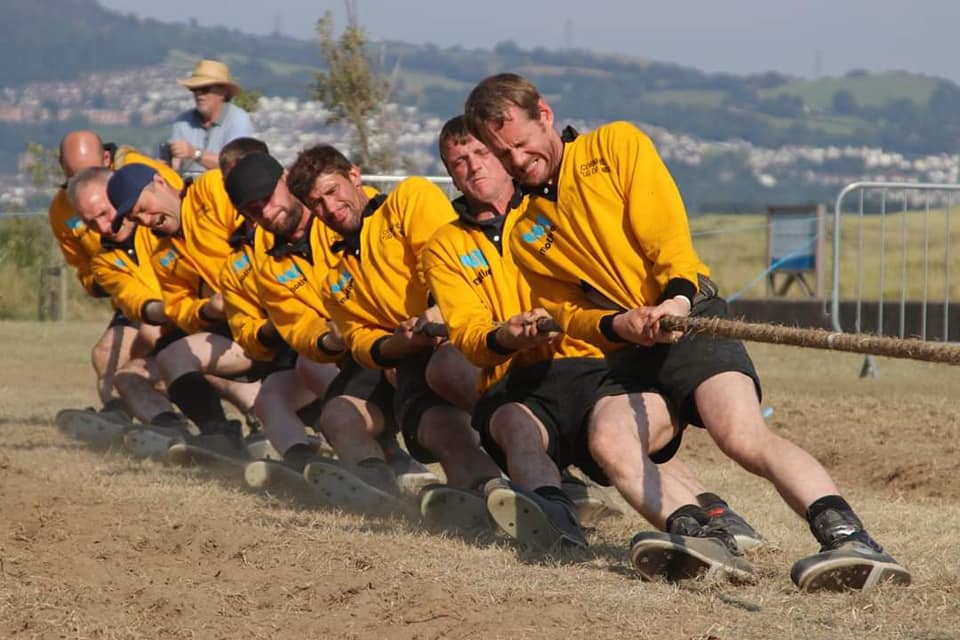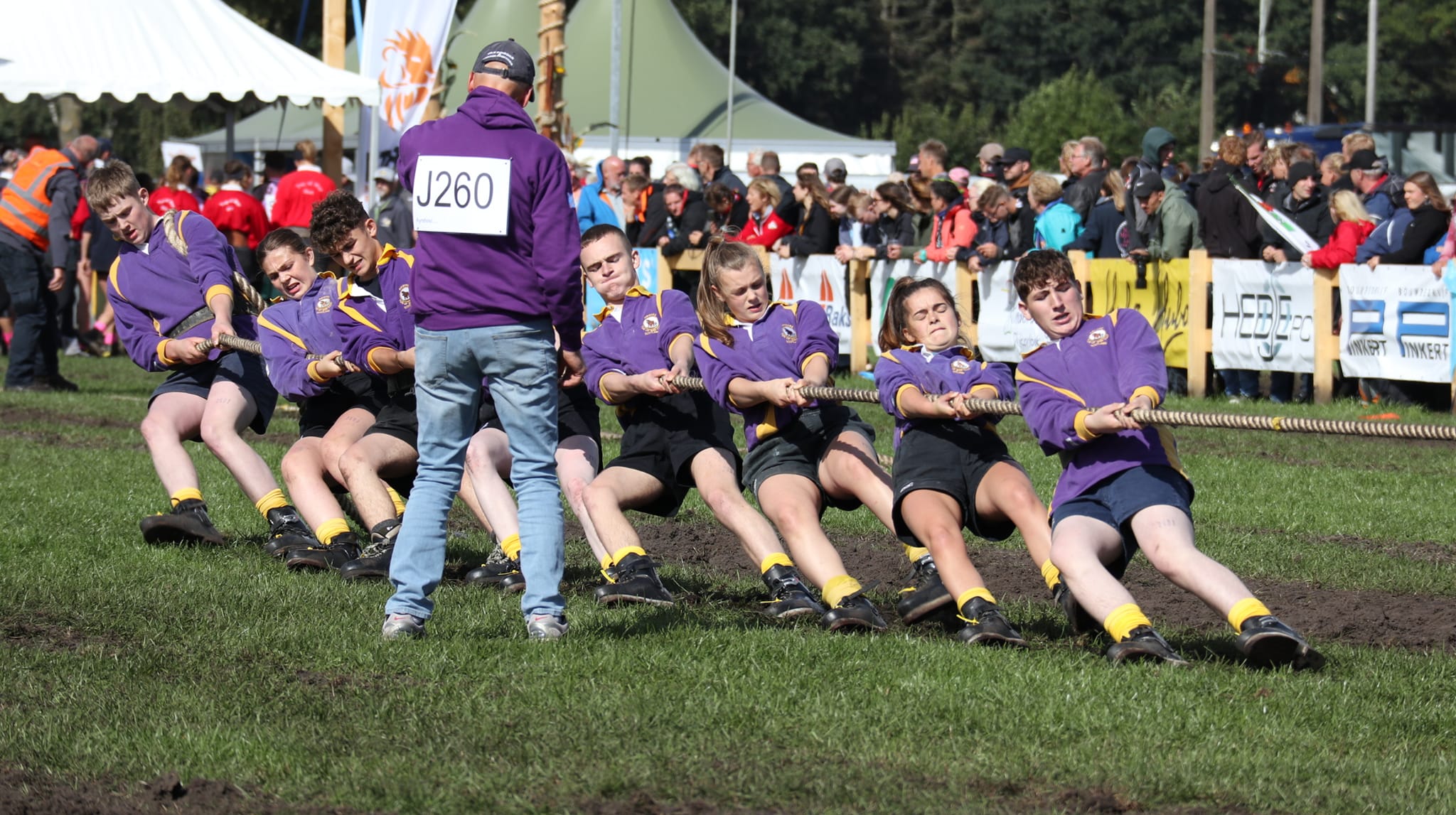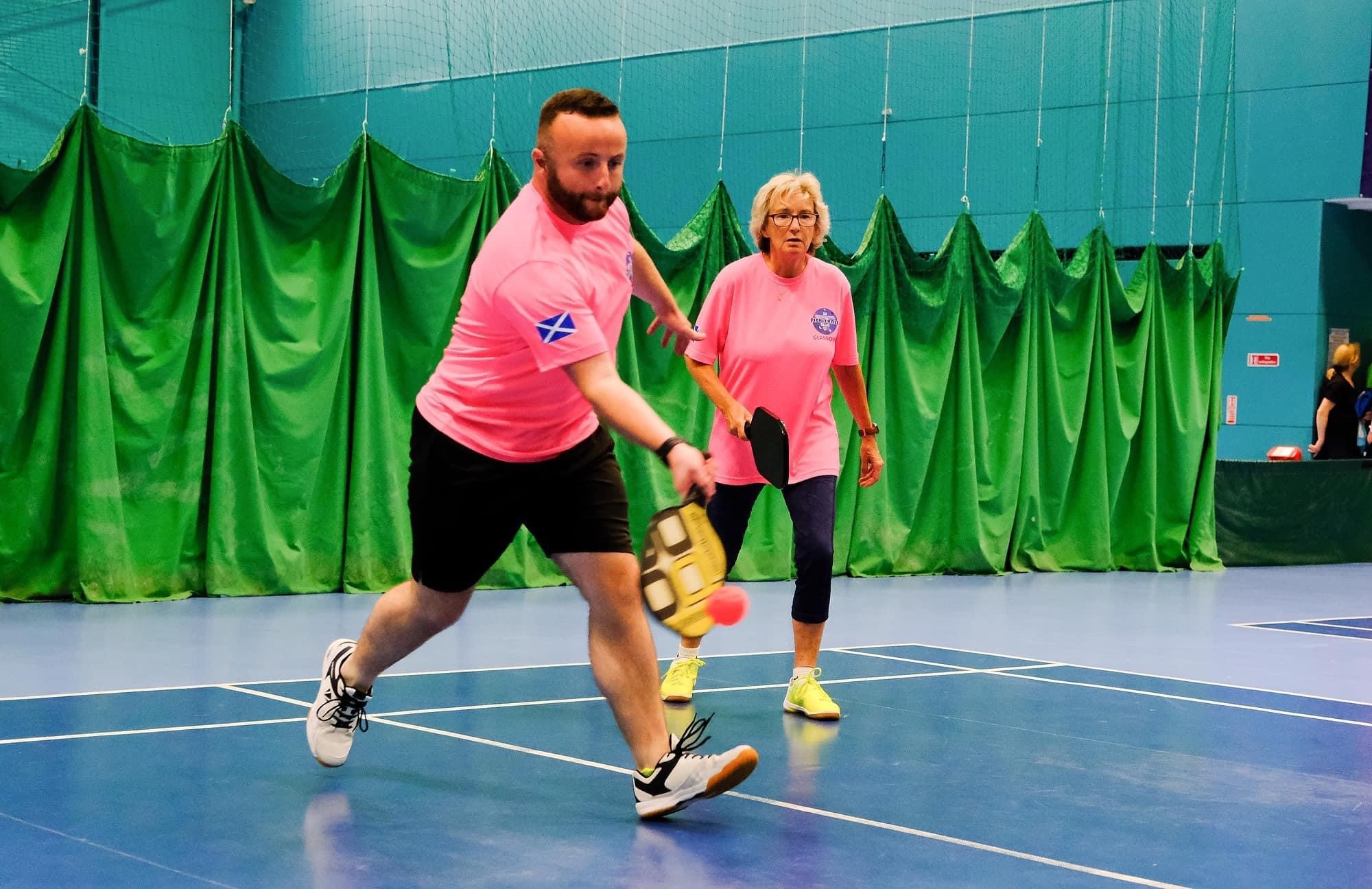While tug of war is renowned for being one of the most fiercely contested events at the traditional Scottish Highland Games, for many it is much more than this. It’s a passionate, ever growing, sport – and one that welcomes new members all year round.
What is tug of war?
Tug of War is a competition involving two teams pulling on a rope, trying to get the centre point to cross the line on their side. Colin Montgomery, Coach of Ayrshire Tug of War Club explained, “Everybody starts off with the attitude of how hard can it be to pull a rope? And the answer is very, because that other person is matching you, so you need to keep getting better at it. It is an incredibly technical sport once you get right into the thick of it.”
“The reality of tug of war is that it’s a power endurance sport and the endurance side of it is a big part.”
Indoor and outdoor training
 Tug of war runs both indoor and outdoor seasons, both of which can be quite different in their disciplines. Colin said: “The principles [of competing indoor/outdoor] are the same but it is almost two different sports. You could have phenomenal indoor players who don’t do well outdoor and vice versa.”
Tug of war runs both indoor and outdoor seasons, both of which can be quite different in their disciplines. Colin said: “The principles [of competing indoor/outdoor] are the same but it is almost two different sports. You could have phenomenal indoor players who don’t do well outdoor and vice versa.”
“Outdoor is more mobile because the ground is changing, you’re more reliant on your upper body and it is just a different way to get the power onto the rope.”
Mairi Fisher, Tug of War Scotland CEO, added: “I would say outdoor is dominated by women in Scotland at the moment. The girls have been amazing. We have junior girls that competed at British and Irish Junior Championships, and we got two gold medals – they have been brilliant. Only one of them had been to a UK championship before, the rest of them were all totally new to it this year.”
Colin said: “With indoor - because you’re on mats and in trainers - you’re in this macular power position all the time, it is a real power sport. Your indoor body position is static. [Indoor] suits the experienced teams who have got real power, it is a real test of strength”
What are the benefits?
Tug of War is a fun sport to be a part of. One of the major benefits of the sport is the community that comes along.
As Colin describes it: “We are quite a close-knit family so there is good community spirit.”
“It’s an awful lot of fun. Once you get into it and you get to grips with it you can enjoy it for many years. It’s remarkably addictive.”
“I think it is a true team sport”, commented David Mackenzie, Coach of Cornhill Tug of War Club, “If somebody slips or pulls, you really must pull together.”
That sense of teamwork was echoed by Colin, “Once you have a group of people that have pushed themselves to try and get successful, the bond that they have got never goes away. What you have been through, it takes a lot to get there.”
Being part of the tug of war community also allows you to travel the world with the sport and your team.
Colin mentioned, “We get to see a lot of the country and the world. We have been to China, South Africa, Holland, Ireland, Italy and America.”
How do I get involved?
Despite the obvious downsides, COVID-19 seemed to have had quite a positive impact on tug of war participation. Colin highlighted: “During Covid we had one of the biggest uptakes that we can remember because everybody else’s social events were cancelled. We had a good season, a lot of new faces started, and they’ve stayed around.”
David added: “Since Covid a lot of females have gave it a go because it is a non-physical contact sport. It was also one of the first sports to return after lockdown."
“It is open to all, if anyone wants to give it a try.”
It's also a very inexpensive sport, as all you need is a rope and a pair of boots and if you go to your local club, they will have that for you. Just show up with a bit of grit and determination and you will go a long way”

Find out more
- About Tug of War - Untitled Document (scottishtugofwar.com)
- About Tug of War (Facebook) - Scottish Tug of War | Facebook




